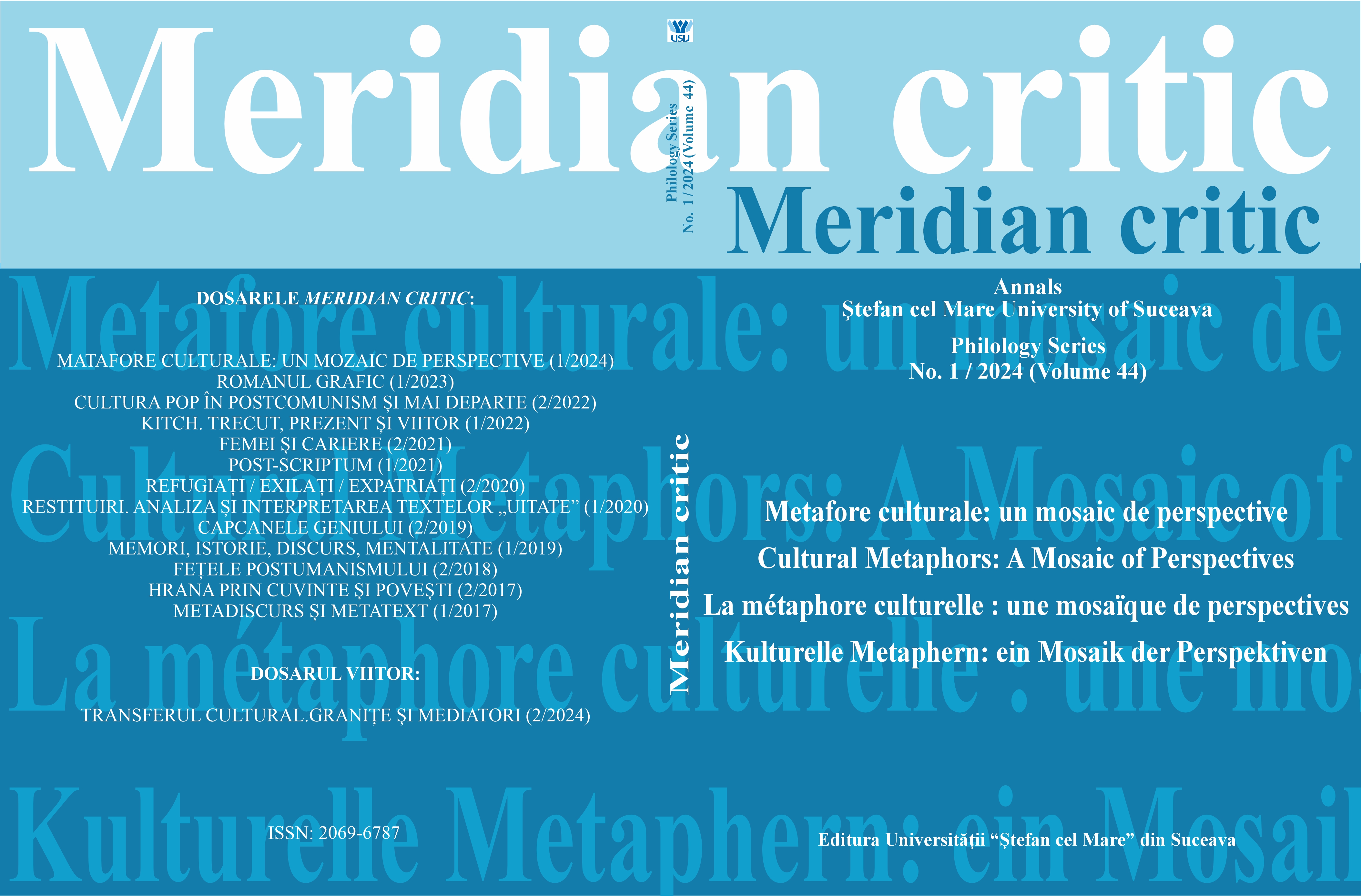Identitatea – ultima redută Cetatea – metafora culturală a identității nestrămutate
Identity – The Last Redoubt Fortress – The Cultural Metaphor of Unmoved Identity
Author(s): Ana-Maria BORDEASubject(s): Language and Literature Studies, Studies of Literature, Theory of Literature
Published by: UNIVERSITATEA »ȘTEFAN CEL MARE« SUCEAVA
Keywords: metaphor; globalization; spirituality; Orient/ Occident; alterity;
Summary/Abstract: “The essence of metaphor is understanding and experiencing one kind of thing in terms of another” (Lakoff & Johnson 1982: 5). Starting from this opinion, I will extend the understanding of its meaning, by proving that a person and a people, can be understood, in their complexity and mystery only in terms of another (whoever interacts and coexists with). Sometimes the Other can be their opposite, their enemy. In a world so complex, vast and picturesque, with a variety of individualities, the thing that probably unites us through a common feature is precisely our distinctiveness. The fortress is a metaphor of the soul that cannot be altered or borrowed, a symbol of the essence, of the authenticity of a people, that is unique and impossible to subdue. The Siege, by Albanian author Ismail Kadare, and The White Castle, by Turkish writer Orhan Pamuk illustrate this idea, although the nation that each author represents is at war. The metaphor is the synthesis of a people's thinking, and when it coincides with the representation of other peoples, it can be deduced that it becomes a link between different cultures and between all people in general, proving that we are similar in essence and therefore, the fight for supremacy or for domination is unreasonable.
Journal: Meridian critic
- Issue Year: XLIV/2024
- Issue No: 1
- Page Range: 89-97
- Page Count: 9
- Language: Romanian

